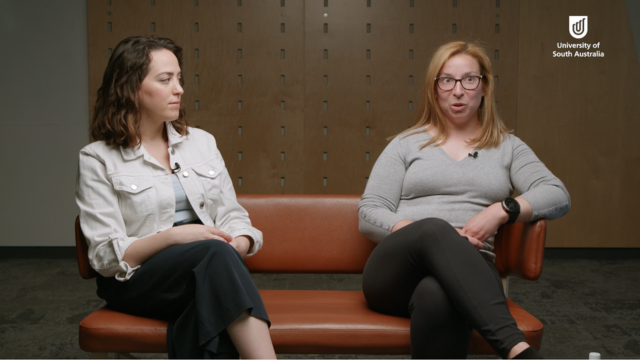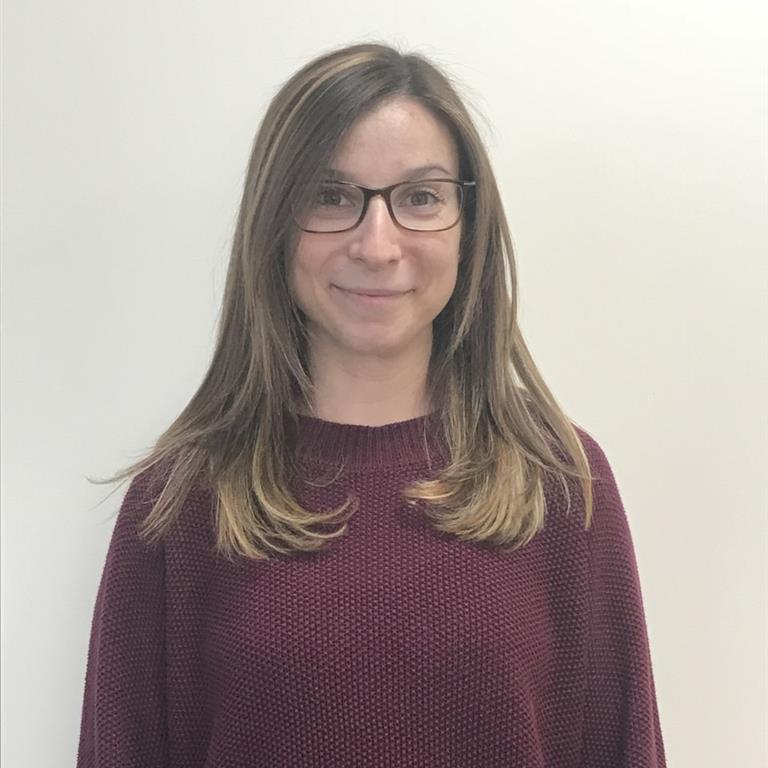Bachelor of Psychology (Honours) (Cognitive Neuroscience)
Degree Level Undergraduate
Year 2025
You're considered an International student if you are:
Degree Level Undergraduate
Year 2025
Program Code
MHPU
Prerequisites
None
Assumed Knowledge
None
Fees
AUD$ 34,400 per annum (per 1.0 EFTSL) for students enrolled in 2025
Admissions
Student Profile
International Admission by Country
See full entry requirements
CRICOS Code
091255A
The admission criteria have been grouped to assist you to easily find the information most relevant to your circumstances. However, you may fit into more than one and the university will consider applicants against each of the relevant criteria.
Certain conditions apply. For more information refer to Appendix 4 of the University's Selection and Entry policy.
Applicants are required to meet one of the following criteria with a competitive result, and demonstrate that they fulfil any prerequisite requirements and essential requirements for admission:
Recent secondary education
Meet any prerequisite requirements with a minimum grade of C- or equivalent
AND
Applicants who have not achieved the Selection Rank required for automatic selection may be selected for any remaining places based on the grades of their year 12 subjects.
OR
Higher education study
OR
Vocational Education and Training (VET)
OR
Work and life experience
| Bangladesh HSC | 4 |
| Canada High School (OSSD) | 75 |
| Eynesbury FSP | 370 |
| German Abitur | 3 |
| Kenya KCSE (average) | B+ |
| Malaysia STPM (best 3) | 9 |
| Malaysia UEC | 26 |
| Norway GPA | 4 |
| Pakistan HSSC | 85 |
| Sri Lanka A Levels (best 3) | 9 |
| Sweden GPA | 15 |
| UK Board GCE A Levels/HK Board | 9 |
| Vietnam | 8.5 |
| Australia | 83 |
| IB (best 6) | 29 |
| USA SAT (1600) | 1270 |
| India (best 4) State Board | 80 |
| India (best 4) Central Board | 70 |
| HKDSE | 17 |
| Nepal NEB | 2.81 |
1Ranked #7, ComparED (QILT) Student Experience Survey 2021-22, Skills Development Indicator (Undergraduate). Public universities. 2The only university in SA to have all its assessed Psychology and Cognitive Sciences research rated well-above world standard. 2018 Excellence in Research for Australia (ERA).

South Australia’s only cognitive neuroscience honours degree integrates biology and psychology, offering a unique opportunity for you to explore the neural underpinnings of human cognition and behaviour.
State-of-the-art learning facilities, including a cognitive neuroscience laboratory, Psychology Clinic and sleep and chronobiology laboratory, offer the opportunity for you to learn in a real-world environment. This practical learning environment will see you graduate with hands-on, practical skills and knowledge.
With further study you could also become a registered psychologist or research psychologist. To follow this career path, you must complete additional postgraduate studies in psychology. Find out more

Explore brain function and how it is impacted by social and developmental factors with this unique degree that combines biology and psychology. Core psychology courses, along with courses in cognitive neuroscience, anatomy and physiology, will make up the content during your first three years of study.
Many of these courses include a practical component. Research studies are also a key focus. During your third year you will also select from a number of psychology-specific professional development courses, which will complement the degree’s core content. These courses include:
During your final year you will undertake advanced coursework and a supervised research project.

This is the only cognitive neuroscience honours degree offered in South Australia – it is taught by world-class researchers at a university ranked number one in South Australia for research in Psychology1.
Studying this degree will see you graduate industry-ready; you will explore the impact that social and developmental factors have on cognition in our state-of-the-art laboratories, as well as explore the brain-based mechanisms behind these processes.
You will also benefit from our award-winning research, and as part of your studies complete in-depth research and project work that will equip you with specialised skills needed for a career in this area.
1The only university in SA to have all its assessed Psychology and Cognitive Sciences research rated well-above world standard. 2018 Excellence in Research for Australia (ERA).
Hear from UniSA staff and former Psychology students Dr Alex Agostini and Dr Stephanie Centofanti on where a degree in Psychology can take you.

The ability to listen and analyse, plus the possession of critical thinking skills and an interest in human behaviour and biology, are key attributes of students considering a career in psychology and cognitive neuroscience. Careers to consider:
*To follow this career path at UniSA, you will need to complete further study. Find out more.
This program is accredited by the Australian Psychology Accreditation Council. On completion of the program, graduates will have met the academic requirements for associate membership of the Australian Psychological Society and the prerequisites to apply for postgraduate study in Psychology.
Applying to study with us:
Australian
There are other pathways you can follow to study this degree, including:
Every year, over 2,500 UniSA students are supported in their studies through scholarships and grants worth millions of dollars. Check out the scholarships below. One of them may be perfect for you. Visit our scholarships page for more.
Recipients can get a 50% reduction on tuition fees for up to four years of full-time study for selected degrees.
Recipients can get a 15% reduction on tuition fees for the duration of their chosen degree.
As a UniSA student, you will have unique access to work placement opportunities, overseas study tours and exchanges, networking events, internships, guest speakers and more.
Our campuses are equipped with state-of-the-art facilities including modern lecture theatres, libraries, workshops and laboratories, as well as spaces that simulate real work environments. These are all supported by the latest technologies and a 24/7 online learning platform. We have health services on campus, gymnasiums, technology zones and great student lounges. You will also gain access to a range of community clinics, which provide professional and cost effective services in areas of health, business, law and psychology. There are campus sport activities to keep you active, and if you are keen to explore the social side of university life, there are movies, cooking demonstrations, parties and lots more.
Adelaide also has a variety of accommodation options to suit different requirements and budgets. Options include dedicated student accommodation and private rentals. See our long-term accommodation pages, or explore our student accommodation by Scape on Bank Street in Adelaide’s lively cultural precinct, an ideal location for students. It is within easy reach of UniSA’s city and metropolitan campuses, Rundle Mall shopping, the Central Market, Chinatown, and the West End’s vibrant nightlife. It is also across the road from the Adelaide train station, and on bus and tram routes.
As a psychology student, you will have access to:

My research focuses on the development of a model of language that respects basic design principles of the human brain. I am also interested in the neurobiology of reading, language and ageing, and the notion of "complexity" in cognitive science especially in language theory.

There are a number of ways to apply to study UniSA's undergraduate and postgraduate coursework degrees.
You can access our online International Application System through our How to Apply page. The International Application System is an easy and secure online application and acceptance process. You will have visibility of your application through the secure online portal with the ability to download offer documents, submit your acceptance and make a payment.
Alternatively you can submit an application through one of the University's registered Education Agents.
If you are completing an Australian year 12 qualification in Australia or overseas, or the International Baccalaureate (IB) Diploma Programme in Australia, you must apply through SATAC http://www.satac.edu.au/.
If you are applying for the UniSA Study Abroad or Study Abroad Plus program, you can submit your application online here.
Postgraduate study by research
For information on applying to do postgraduate study by research, including Masters by Research, PhDs or Doctorates, please visit http://unisa.edu.au/resdegrees.
There is no closing date for submitting your application however the admissions process takes between one and three weeks from the date that we receive your application and all required supporting documentation.
If you are completing an Australian year 12 qualification in Australia or overseas, or the International Baccalaureate (IB) Diploma Programme in Australia, you must apply through SATAC. Key dates for applications can be found here.
You may be eligible to receive credit or advanced standing for your chosen UniSA degree based on your previous studies, if they are in a related area at an equivalent or higher level. Receiving credit will reduce the number of courses you undertake within the degree, and may also reduce the overall duration of your degree.
The amount of credit you may be eligible to receive is assessed on a case-by-case basis by the Admissions team.
The best way to determine your eligibility to receive credit or advanced standing is to apply using our International Application System which can be found on our How to Apply page. You will need to supply detailed syllabus documents with your application.
UniSA welcomes the opportunity to speak with you regarding your study options. Our staff are able to talk to you about degree information, career outcomes and pathways, entry requirements, applications, and student life, so that you are able to make the best study decision for your future.
Click here to book a 1:1 appointment with one of our enquiries team.
We also have many events throughout the year in Australia and overseas where you can speak with UniSA representatives about your area of interest. View our calendar of events in your home country by selecting the 'International' filter.